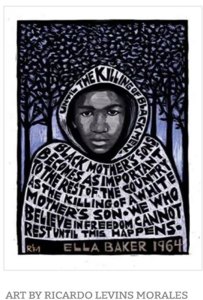Victor Hugo’s epic novel about an ex-convict’s fight to find redemption gave my incarcerated students a lens to see their own lives and struggle for dignity in a society as heartless to the poor as 19th-century France.
Mr. Fish / Truthdig
I spent the last four months teaching Victor Hugo’s 1862 novel “Les Misérables” at a maximum-security prison in New Jersey. My students—like Hugo’s main character, Jean Valjean, who served 19 years in prison—struggle with shame, guilt, injustice, poverty and discrimination, and yearn for redemption and transformation. The novel gave them a lens to view their lives and a ruling system every bit as cruel as Hugo’s 19th-century France.
“Les Misérables” was wildly successful when it was published, including among Civil War soldiers in the United States, although Hugo’s condemnation of slavery was censored from Confederate copies. It was American socialist leader Eugene V. Debs’ favorite book—he read it in French. The socialist British Prime Minister Lloyd George said “Les Misérables” taught him more about poverty and the human condition than anything else he had ever read and instilled in him a lifelong ambition “to alleviate the distress and the suffering of the poor.” Hugo’s novel, however, enraged the ruling elites. It was panned by French critics. Copies were burned in Spain. Pope Pius IX put it on the church’s list of banned books, along with “Madame Bovary” and all the novels of Stendhal and Honoré de Balzac.
“Les Misérables” was wildly successful when it was published, including among Civil War soldiers in the United States, although Hugo’s condemnation of slavery was censored from Confederate copies. It was American socialist leader Eugene V. Debs’ favorite book—he read it in French. The socialist British Prime Minister Lloyd George said “Les Misérables” taught him more about poverty and the human condition than anything else he had ever read and instilled in him a lifelong ambition “to alleviate the distress and the suffering of the poor.” Hugo’s novel, however, enraged the ruling elites. It was panned by French critics. Copies were burned in Spain. Pope Pius IX put it on the church’s list of banned books, along with “Madame Bovary” and all the novels of Stendhal and Honoré de Balzac.


